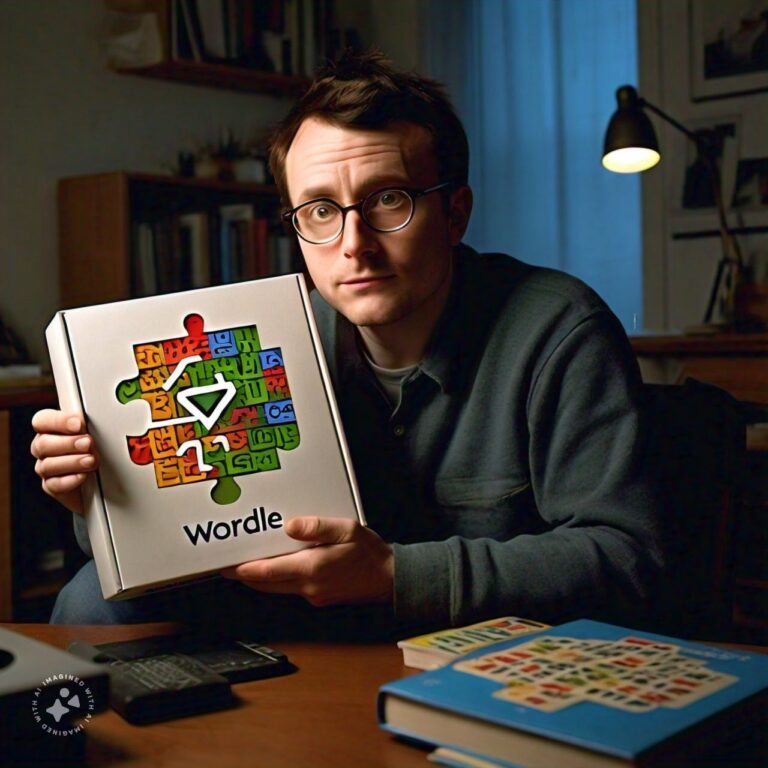Wordle has become a sensation in the world of online gaming, captivating users with its simplicity and engaging challenge. But what exactly is Wordle, and why has it taken the internet by storm? In this article, we will explore the ins and outs of this fascinating game.
Introduction to Wordle: What is Wordle and How Does It Work?
Wordle is a word puzzle game where players have six attempts to guess a five-letter word. Each guess must be a valid five-letter word, and after each guess, the game provides feedback in the form of colored tiles. Green tiles indicate correct letters in the right position, yellow tiles signify correct letters in the wrong position, and grey tiles mean the letters are not in the word at all. This simple yet addictive gameplay has made Wordle a favorite among puzzle enthusiasts.
The core of Wordle’s appeal lies in its elegant simplicity. The game’s design is straightforward: there are no complicated rules, no time limits, and no in-game purchases. Players simply guess the word, receive feedback, and refine their guesses based on that feedback. The daily puzzle aspect adds to the excitement, as players look forward to solving a new word each day.
History of Wordle: When and Who Created Wordle?
Wordle was created by Josh Wardle, a software engineer, in October 2021. Initially developed as a personal project for his partner, the game quickly gained popularity after being released to the public. Its rise to fame can be attributed to its shareable nature, allowing players to post their results on social media, thus attracting more players and creating a community around the game.
Josh Wardle’s motivation behind creating Wordle was to craft a game that his partner would enjoy, without the intrusive ads and monetization strategies common in many modern games. This pure intent resonated with many players who appreciated a game designed for fun and mental engagement rather than profit. As a result, Wordle’s growth was organic, spreading through word of mouth and social media shares.
How to Play Wordle: Rules and Guidelines for Playing Wordle
Playing Wordle is straightforward but requires strategic thinking. Here’s a step-by-step guide to get you started:
- Start with a Guess: Enter any five-letter word.
- Evaluate the Feedback: Based on the colored tiles, adjust your next guess.
- Use Process of Elimination: Discard letters that appear in grey tiles and focus on rearranging letters with yellow and green tiles.
- Continue Guessing: Repeat the process until you guess the correct word or run out of attempts.
When choosing your initial guess, it’s strategic to start with a word containing common vowels and consonants. Words like “audio” or “tears” are popular starting points because they help eliminate a variety of letters. As you progress, focus on the feedback provided. If a letter is marked green, ensure it remains in the same position in subsequent guesses. For yellow letters, try different positions, and avoid grey letters entirely.
Benefits of Wordle: How This Game Is Useful for Mental Exercise
Wordle is not just a fun pastime; it also offers several cognitive benefits:
- Enhances Vocabulary: Regularly playing Wordle can help improve your vocabulary as you learn new words.
- Boosts Problem-Solving Skills: The game requires logical thinking and pattern recognition, enhancing your problem-solving abilities.
- Promotes Memory Retention: Remembering the feedback from each guess helps improve memory retention and recall skills.
Additionally, Wordle encourages lateral thinking, as players must consider various word possibilities and eliminate options based on feedback. This mental exercise can be particularly beneficial for maintaining cognitive flexibility and sharpness. Moreover, the game’s design fosters a calm, focused state, making it a great tool for mindfulness and stress relief.
Reasons for the Popularity of Wordle: Why the Game Became So Popular
Wordle’s popularity can be attributed to several factors:
- Simplicity and Accessibility: The game’s easy-to-understand mechanics and no-cost accessibility make it appealing to a wide audience.
- Daily Challenge: With only one puzzle per day, Wordle creates anticipation and excitement among players.
- Social Sharing: The ability to share results on social media fosters a sense of community and friendly competition.
Another key factor in Wordle’s popularity is its inclusivity. Because it requires no special skills beyond basic vocabulary knowledge, people of all ages and backgrounds can enjoy the game. The thrill of solving the daily puzzle and the subsequent social media sharing have created a global community of Wordle enthusiasts, who exchange strategies, celebrate victories, and commiserate over particularly challenging words.
Different Versions of Wordle: Different Versions and Spin-Offs of Wordle


- Dordle: Players guess two words simultaneously.
- Quordle: Involves guessing four words at once.
- Nerdle: A math-based version where players guess equations instead of words.
These variations have expanded the appeal of the original game, offering new challenges and keeping the experience fresh for dedicated players. For example, Dordle and Quordle increase the difficulty by requiring players to juggle multiple word solutions at once, while Nerdle shifts the focus from language to mathematics, attracting a different set of puzzle enthusiasts.
Other notable spin-offs include:
- Worldle: A geography-based version where players guess countries based on their shapes.
- Heardle: A music-based game where players identify songs from short clips.
- Semantle: A more complex word association game that requires deeper language comprehension.
Each of these versions maintains the core principles of Wordle—simplicity, daily puzzles, and shareability—while introducing unique elements that broaden the game’s appeal.
Conclusion
Wordle is more than just a game; it’s a daily ritual for millions, combining fun and mental exercise in an accessible format. Whether you’re a word enthusiast or just looking for a quick brain workout, Wordle offers something for everyone. The game’s simple yet challenging mechanics, coupled with its ability to bring people together through shared experiences, make it a standout in the world of online puzzles.


